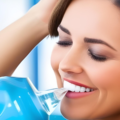Are you searching for a natural solution to achieve thicker, fuller hair? Lots of products claim to help hair grow, but hair growth supplements offer a more solution.

10 Surprising Health Benefits of Carbs You Didn’t Know About
10 Surprising Health Benefits of Carbs You Didn’t Know About
10 Surprising Health Benefits of Carbs You Didn’t Know About
For years, carbohydrates have been unfairly blamed for weight gain and metabolic issues.
You hear it all the time: low-carb equals healthy. But that’s not always the case. Carbohydrates are crucial; without them, your body can’t perform at its peak.
There’s a difference between carbs. The right carbs give you many good things. The positive effects on health are backed by scientific research; it’s not just a feeling!
Feeling better, having more energy, and just plain feeling good? Healthy habits are the foundation.
This goes way beyond simple energy provision. Everything’s changing. A big shift is coming. Think sustainability, think community impact. The real deal. The best carbs for you.
Good health and preventing illness depend on them.
Prepare to have some myths debunked! Including little-known carb science. Carbs: Ten health benefits you might not know about.
Many people miss this. You might be surprised by what we have to share about carbohydrates.
These surprising facts might completely change the way you see carbs—they’re way more than just energy.
Your well-being depends a lot on carbs. Think of them as the key to a calm and balanced inner world—managing both your hormones and your feelings.
Carb benefits are fully understood only when you grasp how hormones influence our feelings and actions.
1. Carbs Fuel Your Brain for Better Cognitive Function
Your brain relies heavily on glucose, which comes primarily from carbohydrates. Cognitive performance relies heavily on the brain’s ability to produce neurotransmitters.
These crucial chemical messengers are directly impacted by carbohydrate intake; sufficient carbohydrate consumption is therefore essential for optimal brain function.
This is important because cutting carbs might mess with your brainpower. You might find yourself struggling to concentrate, feeling mentally drained, and experiencing that hazy brain fog.
Your brain needs good carbs to work its best, and they also contribute to the production of happy hormones.
Science-backed Insight: 2008 Study by Tufts University: This research found that women who eliminated carbohydrates from their diets performed worse on memory-based tasks compared to those who followed a reduced-calorie, balanced diet.
Notably, cognitive performance improved when carbohydrates were reintroduced.
Whole carbohydrates, such as quinoa, oats, and brown rice, provide steady glucose release for sustained mental clarity.
Quick Tip: Incorporate fiber-rich carbs like sweet potatoes and legumes to keep blood sugar stable and support brain health.
Need a brain boost? Reach for some healthy carbs—they’re packed with energy and support the production of feel-good hormones like serotonin and dopamine.
Dopamine, serotonin, oxytocin, and endorphins: These brain chemicals are crucial. Get the balance right for peak mental and emotional health.
2. Stress Less and Feel Better with the Help of Carbs
Carbs are super important for making feel-good hormones. Serotonin’s a big deal when it comes to hormones and mood. Happiness and well-being?
Dopamine’s got that covered; it’s a key neurotransmitter. Carbohydrates do a lot more than just fuel our bodies; this is a really cool fact about them.
Hormones and emotions, like estrogen and mood, are controlled by them. Understanding the interplay between serotonin vs dopamine vs oxytocin can help us appreciate how carbs influence our emotional state.
Science-backed Insight: A PubMed review explains that carbohydrate consumption raises brain serotonin via insulin-mediated tryptophan uptake, influencing mood and apetite.
Quick Tip: Opt for complex carbs like whole grains and lentils instead of refined sugars to enhance your mood naturally.
For a healthy mind and emotional well-being, include good carbs in your diet. Hormonal shifts during menstruation and perimenopause can be tough. PMS (premenstrual síndrome) and PMDD (Premenstrual dysphoric disorder) symptoms are easier to handle with this.
3. Carbs Improve Athletic Performance and Recovery
Carbohydrates are the primary fuel source for muscles during exercise. Without adequate carb intake, performance declines, and recovery slows.
This is especially crucial if you’re on the keto diet; carbs are heavily limited. Athletic performance and recovery depend a lot on the connection between carbs and the endorphins your body releases when you exercise.
Science-backed Insight: A 2019 review in Nutrients discussed carbohydrate intake strategies for endurance athletes, noting that consuming 1–4 g/kg of carbohydrates 1 to 4 hours before exercise can enhance performance.
Fuel up with carbs post-workout! Load up on glycogen; it speeds up recovery and eases those aches.
Quick Tip: For pre-workout energy, consume bananas, oatmeal, or whole-grain toast; for post-workout recovery, go for quinoa, brown rice, or fruit.
These healthy carbs provide the necessary energy without the drawbacks of simple sugars.
4. Your Gut and Digestive System Get a Boost from Carbs
Some carbohydrates include fiber that feeds your gut’s good bacteria. Good gut bacteria are nourished and flourish because of this. A healthy gut is a happy gut! Better digestion is a benefit.
Here’s a cool thing about carbs that most people miss: they can significantly impact your mood and mental health through the gut-brain connection, which is closely tied to the endocrine system.
Hormones strongly influence our feelings and actions; this link is very important.
Science-backed Insight: “Dietary fiber intervention on gut microbiota composition in healthy adults: a systematic review and meta-analysis,” published in the American Journal of Clinical Nutrition in June 2018.
A big analysis of 2,099 people across 64 different studies showed something cool: dietary fiber helped increase helpful gut bacteria.
Specifically, we saw. Friendly bacteria, *Bifidobacterium*, are pretty cool. and Friendly bacteria, *Lactobacillus*, are pretty cool. Butyrate in the feces increased; this was observed across multiple species.
A quick tip for you. Include fermented whole grains, oats, and legumes for better gut health. Good gut health, thanks to these carbs, might just lift your spirits and ease anxiety.
Dealing with hormonal issues? These carbs may offer some relief. Thinking about how female hormones affect mental health is crucial.
5. Carbs Boost Heart Health
Eating the right types of carbohydrates can reduce cholesterol levels, lower blood pressure, and support heart function.
If heart health or metabolic balance is on your radar, this makes all the difference. For example, people with high cholesterol or diabetes may find this particularly relevant.
A woman’s heart health depends a lot on how her body handles carbs, especially given how estrogen levels fluctuate.
High estrogen and low estrogen create very different health pictures.
Science-backed Insight: A meta-analysis in the Lancet found that people consuming high-fiber carbohydrates had a 15-30% lower risk of cardiovascular disease.
Eating whole grains like brown rice and barley boosts your good cholesterol (HDL) while lowering the bad cholesterol (LDL). Beta-glucans are the reason why!
Quick Tip: Swap out white bread and pasta for whole-grain alternatives to protect your heart. Cardiovascular health benefits from a balanced diet. Ensure to include these healthy carbs!
6. Carbs Aid in Weight Management
Contrary to popular belief, eating the right carbs can actually help with weight loss and appetite control.
This is especially true when compared to unhealthy carbs or bad carbs that are often associated with weight gain.
Your weight? Carb intake and hormones—estrogen and thyroid hormone, in particular—are major players.
Weight control is easier when you understand how these elements work together. Think of it like a well-oiled machine—each part plays a vital role.
Science-backed Insight: Eating fiber-rich carbs keeps you feeling full, so you won’t overeat and get those pesky cravings.
A recent study featured in the Journal of Nutrition found that high-fiber whole grain eaters experienced better results with their weight. Results varied; those on low-carb plans saw a different outcome.
Quick Tip: Replace refined grains with whole grains like farro, bulgur, and steel-cut oats to promote fullness and curb cravings.
To lose weight effectively, pay close attention to your daily carbohydrate consumption.
For women experiencing hormonal changes, carbohydrates play a big role. Hormones that regulate your energy and mood are influenced by carbohydrates.
7. Carbs Strengthen the Immune System
Carbohydrates play an essential role in supporting the immune response and reducing inflammation.
Carbohydrates play a surprisingly big role in health; it’s a fact many people miss.
Your emotions and behavior are connected to your immune system’s strength; a healthy immune system contributes to overall well-being.
Science-backed Insight: The gut’s microbiome, shaped by our food choices, plays a major role in building and maintaining a healthy immune system, a *Cell Research* paper explains. This is a critical finding.
Think of it like this: beta-glucans from yeast are like tiny messengers. They activate immune cells (macrophages and neutrophils, for example) which then create more interleukins and cytokines, ultimately improving the body’s natural defenses.
A quick tip for you. Mix up your plate with colorful fruits, fiber-rich whole grains, and antioxidant-packed veggies to bulletproof your immune defenses.
Good-for-you carbs give your body the fuel it needs to fight off illness and maintain mental health.
Managing depression, including postpartum depression, is critical because mental and immune systems are deeply connected.
8. Carbs Enhance Sleep Quality
Consuming complex carbohydrates can help regulate melatonin production, leading to improved sleep quality.
This is a fun fact: Carbs? They really mess with your hormones and mood, even your sleep! Emotional ups and downs?
Figuring out the hormonal culprits can help you get better rest and feel much healthier.
For example, imbalances in cortisol and estrogen are linked to sleep disturbances and mood changes.
Science-backed Insight: Better sleep? The *American Journal of Clinical Nutrition* just published research suggesting slow-digesting carbs eaten at bedtime could improve both sleep quality and how long you sleep.
Magnesium and tryptophan, which help you sleep, are in sweet potatoes, brown rice, and bananas.
Quick Tip: Try a whole-grain snack before bed, such as oatmeal with almonds, to improve sleep quality. Improved sleep and hormone balance are possible benefits of eating the right carbs.
Stress reduction is another plus. Think about how your moods and sleep change; hormones play a powerful role.
9. Carbs Play a Role in Bone Health
Surprisingly, carbohydrates assist in calcium absorption and bone density maintenance.
Menopause brings lower estrogen, which weakens bones. Since estrogen helps keep your bones strong, it’s really important to take steps to prevent osteoporosis for your health.
The hormonal shifts of perimenopause and menopause directly impact bone strength.
This is because of fluctuating estrogen. Understanding high estrogen vs low estrogen symptoms is key to managing bone health effectively.
Science-backed Insight: Prebiotic fibers found in fruits, whole grains, and legumes enhance calcium absorption in the gut.
According to a 2018 study published in the Journal of Bone and Mineral Research. Calcium intake and hormone levels can change how fiber impacts bone health, and these effects may differ between men and women.
Helpful hint: Pair whole grains with calcium-rich foods (leafy greens, dairy, almonds) for stronger bones. Bone health benefits when these carbs and other nutrients work together.
Women, from their childbearing years onward, will find this combination very helpful. It is principally true for their overall health.
For those considering hormone replacement therapy, consulting with obstetrician-gynecologists can provide personalized advice on maintaining bone health through diet and medical interventions.
10. Carbs Help Regulate Hormonal Balance
Carbohydrates impact insulin, cortisol, and thyroid hormones, all of which play a role in metabolism and stress response.
Thinking about type 2 diabetes, your metabolism, and how hormones impact your behavior? It is key to know.
The endocrine system, which produces and regulates hormones, is closely tied to carbohydrate metabolism.
Understanding this connection is crucial when considering questions like “can hormones affect mental health?” and “does ovulation make you emotional?”
Science-backed Insight: A Harvard Health study discovered that eating carbs that don’t spike your blood sugar really helps control those blood sugar levels!
As a result, stress hormones don’t spike as much, contributing to better mood regulation.
Whole grains, fruits, and legumes provide sustained energy without insulin crashes.
A quick tip for you. For balanced hormones, make sure your meals include fiber-rich carbohydrates, healthy fats, and protein.
A balanced emotional state is supported by understanding your daily carbohydrate requirements.
Managing PMS (premenstrual síndrome) and PMDD (Premenstrual dysphoric disorder) is especially crucial because hormone shifts really mess with your mood and actions.
Conclusion
Carbs aren’t the enemy — it’s about choosing the right ones. Whole, unprocessed carbs like fruits, veggies, legumes, and whole grains fuel your brain, support heart and immune health, and help manage weight.
Better sleep, stronger bones, and a balanced mood? They’re surprisingly involved in all of that!
While low-carb diets have their place, most people thrive on healthy carbs that stabilize blood sugar and support hormone regulation.
Better physical and mental health is within reach! Don’t skip the carbs — just pick the good ones. What you eat directly affects how you feel, inside and out.
RELATED POSTS
From Thin to Thick: The Best Supplements for Hair Growth and Thickness
The Top Wonderful Anti-Inflammatory Foods for a Balanced Diet
Chronic inflammation has been linked to conditions like heart disease, diabetes, arthritis, and even certain cancers.
What is the practical Time to Eat your Meals?
Is there a “best time to eat” or an ideal eating schedule? The answer is yes! Good metabolic health, consistent energy, and weight management all depend on when you eat.
FOLLOW DISCOVERY BLOGGER








